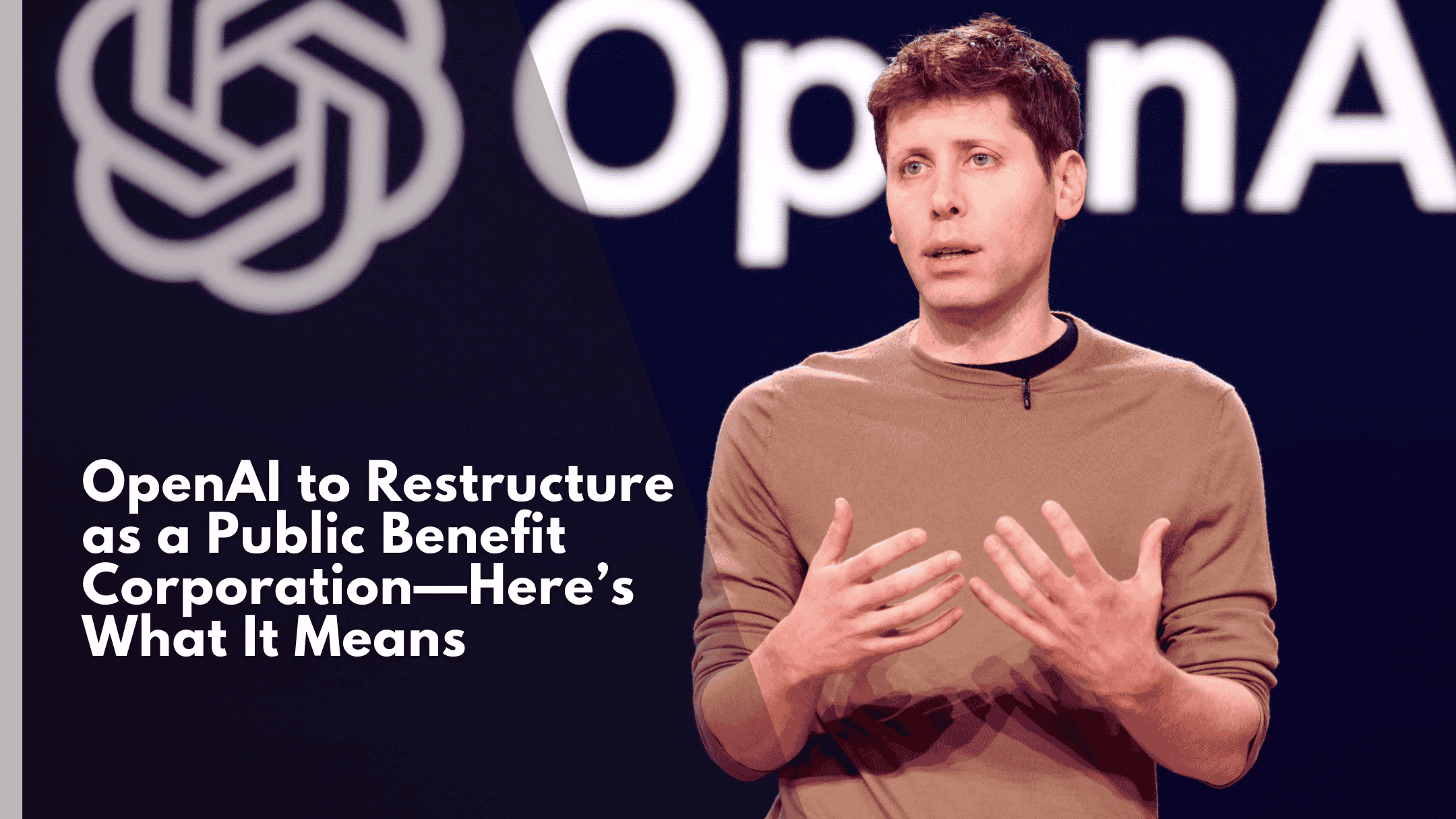
In a groundbreaking move, OpenAI, one of the most prominent players in the artificial intelligence (AI) sector, has announced a strategic transformation set for 2025. The company, founded in 2015 as a nonprofit research organization, is transitioning into a Public Benefit Corporation (PBC). This shift is aimed at streamlining its operations, attracting large-scale investments, and striking a balance between profit generation and societal impact.
This pivotal update represents OpenAI’s attempt to address its growing financial needs while staying true to its original mission of creating AI technologies that benefit humanity. Here’s a closer look at what this means for OpenAI, its investors, and the broader AI landscape.
OpenAI's rapid growth since its inception has been both a boon and a challenge. The company’s pursuit of artificial general intelligence (AGI)—AI that surpasses human intelligence—has led to immense technological breakthroughs, including its flagship product, ChatGPT. However, developing and maintaining such advanced technologies demands significant resources.
To secure further investments at scale, OpenAI's current structure, which caps profits and heavily integrates nonprofit oversight, has proven restrictive. As the organization’s board stated, “Investors want to back us but, at this scale of capital, need conventional equity and less structural bespokeness.”
Under the proposed restructuring, OpenAI will transform its existing for-profit division into a Delaware-incorporated Public Benefit Corporation (PBC). Key elements of this shift include:
Separation of Responsibilities:
Nonprofit Retains Influence:
The nonprofit entity will hold a “significant interest” in the PBC, with shares valued by independent financial advisers. This ensures the nonprofit’s continued ability to influence the company’s direction and maintain alignment with its mission.
Enhanced Investment Appeal:
The PBC’s traditional equity structure is expected to attract large-scale investors, providing the capital needed to develop cutting-edge technologies like generative AI models.
One of the primary goals of OpenAI’s transition is to maintain its mission-driven ethos while embracing a more conventional corporate structure. Unlike traditional corporations, a Public Benefit Corporation is legally required to balance financial returns with societal impact.
According to OpenAI, this structure will better equip the nonprofit to pursue its objectives, allowing it to focus on pressing global challenges, including:
This dual-focus approach mirrors the strategies of competitors like Anthropic and xAI, both of which operate under similar structures.
The decision to restructure comes amid intense competition and scrutiny in the AI space. Key challenges include:
Developing large language models like ChatGPT requires continuous investment in cutting-edge hardware, such as high-powered processors (primarily sourced from Nvidia) and expansive cloud infrastructure (provided by Microsoft, OpenAI’s top backer).
Not everyone is on board with OpenAI’s shift. Co-founder Elon Musk has publicly criticized the move, calling it a “total scam” and initiating legal action to block the transition. Musk’s concerns reflect broader questions about whether OpenAI’s pursuit of profitability will dilute its commitment to ethical AI development.
OpenAI has faced significant departures, with high-profile executives like Mira Murati (Chief Technology Officer) and John Schulman (Co-founder) leaving in recent months. Some former employees have expressed concerns that the company’s focus on commercialization has come at the expense of safety and long-term research priorities.
OpenAI’s shift to a PBC signals broader trends in the AI sector. As the industry grows—projected to generate $1 trillion in revenue within a decade—companies must navigate the tension between innovation, profitability, and societal responsibility.
By adopting a hybrid structure, OpenAI sets a precedent for balancing financial growth with public good. This could encourage more AI firms to explore similar models.
As OpenAI secures the capital it needs to scale, it will intensify competition with rivals like Google, Amazon, and Musk’s xAI. These companies are racing to capture market share in areas ranging from generative AI to cloud computing and autonomous systems.
The move is likely to reassure investors who were previously wary of OpenAI’s bespoke capped-profit model. By aligning with conventional equity practices, OpenAI can unlock new funding opportunities to sustain its growth trajectory.
While the transition to a PBC is promising, it is not without risks. Critics argue that the pursuit of profit could compromise OpenAI’s original mission to prioritize safety and ethical considerations. Additionally, the restructuring raises questions about transparency and accountability in the AI sector.
Elon Musk’s lawsuit exemplifies these tensions, as he accuses OpenAI of straying from its founding principles. Meanwhile, internal dissent and executive turnover suggest that not everyone within OpenAI is convinced of the merits of this transformation.
As OpenAI navigates this complex transition, its success will depend on:
CEO Sam Altman has emphasized that this restructuring is a natural evolution for OpenAI. “Our board has been considering this for almost a year as we think about what it takes to get to our next stage,” Altman said.
OpenAI’s move to become a Public Benefit Corporation is a defining moment for the company and the broader AI industry. By adopting a structure that blends profitability with societal impact, OpenAI is positioning itself to tackle some of the world’s most pressing challenges while staying competitive in a rapidly evolving market.
As the AI race intensifies, all eyes will be on OpenAI to see whether this bold strategy delivers on its promise. For investors, innovators, and consumers alike, the next chapter in OpenAI’s journey will shape the future of artificial intelligence.
Disclaimer - Skrill Network is designed solely for educational and informational use. The content on this website should not be considered as investment advice or a directive. Before making any investment choices, it is crucial to carry out your own research, taking into account your individual investment objectives and personal situation. If you're considering investment decisions influenced by the information on this website, you should either seek independent financial counsel from a qualified expert or independently verify and research the information.
Tags:
RECENT POSTS
TAGS
Subscribe to the Skrill Network Newsletter today and stay informed
Recommended Articles